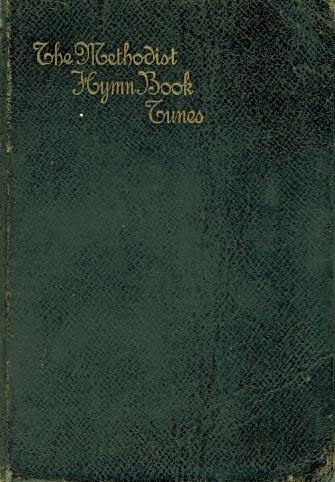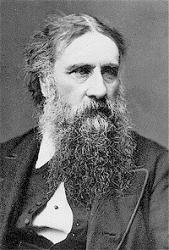Planning worship?
Check out our sister site, ZeteoSearch.org,
for 20+ additional resources related to your search.
- |
User Links
Search Results
The Methodist Hymn-Book with Tunes

Publication Date: 1933 Publisher: Methodist Conference Office Tune Title: RHODES Publication Place: London
The Methodist Hymn-Book with Tunes
And therefore be merry, set sorrow aside
Meter: 11.11.11.11 with refrain Appears in 19 hymnals Tune Title: A VIRGIN MOST PURE First Line: A virgin most pure, as the prophets do tell Topics: The Lord Jesus Christ His Incarnation Used With Tune: A VIRGIN MOST PURE Text Sources: Traditional
And therefore be merry, set sorrow aside
Abide among us with Thy grace
Author: Josua Stegmann, 1588-1632; Catherine Winkworth, 1829-78 Meter: 8.6.8.6 Appears in 21 hymnals Tune Title: ABBEY Topics: The Church Its Privileges and Security Used With Tune: ABBEY
Abide among us with Thy grace
According to Thy gracious word
Author: James Montgomery, 1771-1854 Meter: 8.6.8.6 Appears in 548 hymnals Tune Title: ABBEY Topics: The Church The Lord's Supper Used With Tune: ABBEY
According to Thy gracious word
A BABE IS BORN
Meter: 8.8.8.8 Appears in 2 hymnals Tune Sources: English Traditional Melody Tune Key: c minor Incipit: 11545 32151 23217 Used With Text: Lord, I was blind! I could not see
A BABE IS BORN
A VIRGIN MOST PURE
Meter: 11.11.11.11 with refrain Appears in 9 hymnals Tune Sources: Sandy's Collection, 1833 Tune Key: F Major Incipit: 34565 43253 45 Used With Text: And therefore be merry, set sorrow aside
A VIRGIN MOST PURE
Lord, I was blind! I could not see
Author: William Tidd Matson, 1833-99 Hymnal: Meth1933 #373a (1933) Meter: 8.8.8.8 Tune Title: A BABE IS BORN Topics: The Christian Life Faith and Regeneration Languages: English
Lord, I was blind! I could not see
And therefore be merry, set sorrow aside
Hymnal: Meth1933 #128 (1933) Meter: 11.11.11.11 with refrain Tune Title: A VIRGIN MOST PURE First Line: A virgin most pure, as the prophets do tell Topics: The Lord Jesus Christ His Incarnation Languages: English
And therefore be merry, set sorrow aside
Abide among us with Thy grace
Author: Josua Stegmann, 1588-1632; Catherine Winkworth, 1829-78 Hymnal: Meth1933 #698 (1933) Meter: 8.6.8.6 Tune Title: ABBEY Topics: The Church Its Privileges and Security Languages: English
Abide among us with Thy grace
Josua Stegmann
1588 - 1632 Person Name: Josua Stegmann, 1588-1632 Tune Title: ABBEY Hymnal Number: 698 Author of "Abide among us with Thy grace" in The Methodist Hymn-Book with Tunes Stegmann, Josua, D.D., son of Ambrosius Stegmann, Lutheran pastor at Sülzfeld, near Meiningen, and finally, in 1593, superintendent at Eckartsberga, near Merseburg, was born at Sülzfeld, Sept. 14,1588. He entered the University of Leipzig in 1608, M.A. in 1611, and was for sometime adjunct of the Philosophical Faculty. In 1617 he was appointed Superintendent of the district (Grafschaft) of Schaumburg, and also pastor at Stadthagen, and first professor of the Gymnasium there; and before entering on his duties graduated D.D. at Wittenberg, on Oct. 24, 1617. When the Gymnasium was erected into a university, and transferred (1621) to Rinteln, he became ordinary professor of Theology there. By the outbreak of war he was forced to flee from Rinteln, in 1623. After his return he was appointed, in 1625, Ephorus of the Lutheran clergy of Hesse-Schaumburg.
By the Edict of Restitution, promulgated by the emperor on March 6, 1629, he was greatly harassed; for the Benedictine monks, after they had settled in Rinteln, in 1630, claimed to be the rightful professors, and demanded the restoration of the old church lands, and especially the property formerly belonging to the nunnery at Rinteln, but which had been devoted to the payment of the stipends of the Lutheran professors. They sent soldiers into Stegmann's house to demand that he should refund his salary, and on July 13, 1632, compelled him to hold a disputation, at which they annoyed him in every possible way. Soon after he was seized with fever, and died Aug. 3, 1632. (Koch, iii., 128; Wetzel, iii., 251; Einladungsschrift des Gymnasium Bernhardinum, Meiningen, 1888; manuscript from Pastor A. Bicker, Rinteln; Dr. Förstemann, Leipzig), &c.
Stegmann was known as a writer of Latin verse while yet a student at Leipzig, and by his contemporaries was reckoned as a hymn writer. It is, however, very difficult to discriminate his productions. The hymns interspersed in his devotional works are given without any indications of authorship, and many of them are certainly by earlier writers, or recasts founded on earlier hymns….Two hymns, which are usually ascribed to Stegmann, and are not found earlier than in his works, have passed into English as follows:—
i. Ach bleib mit deiner Gnade. Supplication. In 1630 it is given in 6 stanzas of 4 lines, as a "Closing Hymn," after the "Prayer for the Preservation of the Doctrine, and of the Church of God." It is a simple and beautiful hymn, and is found in most recent German hymnals, e.g. as No. 208 in the Unverfälschter Liedersegen, 1851. Lauxmann, in Koch, viii., 146, relates various incidents regarding its use (it was, e.g., a favourite hymn of king Friedrich Wilhelm IV. of Prussia), and thus analyses it:—
"It has as its keynote the saying of the two disciples at Emmaus, 'Abide with us.' St. i. puts this prayer simply before the Lord Jesus; st. ii.—vi. develop it in detail: Abide with us with Thy Word as our Saviour (ii.); with the illumination of Thy Spirit as our ever-guiding Truth (iii.) ; with Thy blessing as the God rich in power (iv.); with Thy protection as the Conqueror in battle (v.); and with Thy Faithfulness as our Rock in the time of need (vi.).
The translations are:—
1. Abide with us, our Saviour. This is a free translation of st. i.-iii., as No. 51, in the Dalston Hospital Hymn Book, 1848; and repeated in the Pennsylvania Lutheran Church Book, 1868.
2. 0 Saviour, go beside us. This is a free translation of st. i., iv.,i v., with an original " Shepherd " st., as st. ii., by J. S. Stallybrass, in the Tonic Solfa Reporter, July 1857.
3. Abide among us with Thy grace. This is a good and full translation, in CM., by Miss Winkworth, in her Lyra Germanica, 2nd ser., 1858, p. 84; and her Chorale Book for England, 1863, No. 14.
4. Abide with us, Lord Jesus! Thy grace. This is a complete translation, as No. 8 in the Ohio Lutheran Hymnal, 1880, and marked as a compilation.
5. Come, abide with Thy grace, in our hearts, 0 Lord. By Dr. R. Maguire, 1872, p. 197.
ii. Wie schon leuchtet der Morgenstern, Vom Firmament des Himmels fern. Morning. Included in 1630, as above, p. 10, in 8 stanzas of 10 lines, entitled, "Morning Hymn." The translation in common use is —
How beautiful the Morning Star shines from the firmament afar. This was contributed by Philip Pusey to A. R. Reinagle's Psalm & Hymn Tunes, Oxford, 1840, p. 130. Other trs. are :—(1) "How fair shines forth the Morning-star." By H. J. Buckoll, 1842, p. 24. (2) "How lovely now the morning-star." By Miss Cox, 1864, p. 3. (3) “How beautiful the morning star, Shines in." By R. Massie, in the Day of Rest, 1876, p. 472. [Rev. James Mearns, M.A.]
--Excerpts from John Julian, Dictionary of Hymnology (1907)
Josua Stegmann
Herbert Stanley Oakeley
1830 - 1903 Person Name: H. S. Oakeley, 1830-1903 Tune Title: ABENDS Hymnal Number: 942b Composer of "ABENDS" in The Methodist Hymn-Book with Tunes
Herbert Stanley Oakeley
George Macdonald

1824 - 1905 Person Name: George MacDonald, 1824-1905 Tune Title: ABERDEEN Hymnal Number: 739 Author of "Our Father, hear our longing prayer" in The Methodist Hymn-Book with Tunes Macdonald, George, LL.D., was born at Huntly, Aberdeenshire, Dec. 10, 1824, and educated at King's College, Aberdeen, where he graduated M.A., and from which he afterwards received the honorary degree of LL.D. For a brief time he studied for the Congregational ministry at Highbury College, London, and then became the Minister of the Congregational Church at Arundel, Sussex (1850-53). He afterwards preached for a short time to a small company at Manchester and Bolton. Relinquishing the ministry, he became Lecturer on English Literature at King's College, London, and ultimately gave himself up entirely to literary work. Dr. Macdonald has acquired a great reputation by means of his works of fiction, most of which were originally contributed to magazines, and the most notable of which are David Elginbrod; Robert Falconer; Alec Forbes of Howglen; and Annals of a Quiet Neighbourhood. He was some time Editor of Good Words for the Young, and wrote England's Antiphon for Macmillan's Sunday Library. His poetical works are:—
(1) Within and Without, 1855; (2) The Disciple, and Other Poems, 1860; (3) The Diary of an Old Soul (printed for private circulation), 1867"; (4) Exotics, a volume of translations from the German (most of which first appeared in the Sunday Magazine), 1876; and (5) A Threefold Cord, 1883, part of which previously appeared in his Works of Fancy and Imagination, 10 vols., 1871.
Most of his original hymns were contributed to Hymns and Sacred Songs for Sunday Schools and Social Worship, &c, published by Fletcher and Tubbs, Manchester, in 1855 (2nd. edition, 1856), and of which his brother, and the Rev. G. B. Bubier were the editors. The original hymns, which are signed "G. Macdonald," in this collection are:—
1. A quiet heart, submissive, meek. The Meek inherit the Earth.
2. Daylight fades away. Second Advent.
3. Father, I well may praise Thy name. Sunday Morning.
4. Father, these souls of ours have been. Blessed are the Pure in Heart.
5. If we were longing for the food. Blessed are they that Hunger and Thirst after Righteousness.
6. It was an awful hour that gave. Blessed are the Merciful.
7. Let Thy own voice, 0 Father, say. Blessed are they that mourn.
8. 0 Son of Man, Thy Name by choice. Blessed are the Meek.
9. Our Father, hear our longing prayer. Blessed are the Poor in Spirit.
Some of these hymns were afterwards revised by their author. The next two are from The Disciple, and Other Poems, 1860 :—
10. O God, Whose daylight leadeth down. Evening.
11. O Lord [God] of life, Thy quickening voice. Morning.
Dr. Macdonald's hymns are rich in ideas, but are touched with a mysticism which renders them a little difficult of apprehension. They are however of great value in setting forth truths rarely expressed in hymns, and are likely to grow in favour. [Rev. W. Garrett Horder]
-- John Julian, Dictionary of Hymnology (1907)
=======================
http://en.wikipedia.org/wiki/George_MacDonald
George Macdonald


 My Starred Hymns
My Starred Hymns


